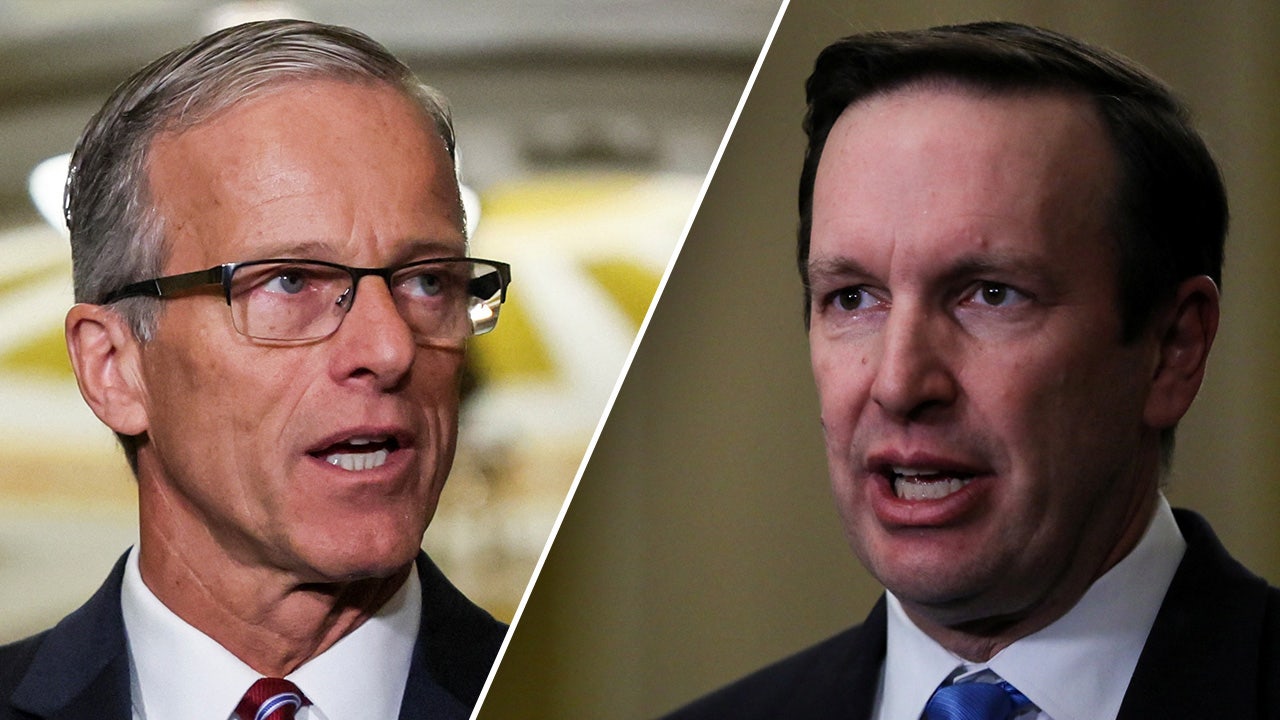Secretary of State Antony J. Blinken touched down on a remote African island chain on Monday, kicking off a four-nation swing through the continent intended to show the Biden administration’s continued interest in Africa amid major conflicts in the Middle East and Europe.
A cool Atlantic breeze blew across the dusty port in Praia, Cape Verde’s capital, as Mr. Blinken noted that the facility there had been expanded and modernized with nearly $55 million in U.S. aid, making it what he called “a much stronger gateway to Africa for us and for so many other countries.” That project was completed more than a decade ago, but more U.S. development funds were on the way, he said.
Although his diplomacy accompanied a refueling stop en route to the continent, Mr. Blinken’s visit to the tiny island more than 400 miles off Senegal’s west coast helped to signal U.S. interest in Africa’s welfare. Mr. Blinken praised Cape Verde as a model of democracy and stability.
After Cape Verde, Mr. Blinken will travel to Ivory Coast, Nigeria and Angola. U.S. officials said he would address a range of issues on his stops, including conflict prevention and political stability after military coups in several countries in recent years.
Despite their intense focus on the wars in Gaza and Ukraine, Biden administration officials said they remained intent on strengthening ties with African nations, which hold vast economic potential and are a locus of great-power competition with China and Russia. Africa is expected to be home to about one quarter of the world’s population by 2050.
Mr. Blinken is making his fourth visit to sub-Saharan Africa as secretary of state. A parade of other top administration officials have also visited the continent over the past year, including Vice President Kamala Harris, Defense Secretary Lloyd J. Austin III and the first lady, Jill Biden.
But President Biden has yet to follow through on a pledge he made in 2022 to visit the continent, raising doubts about the depth of his commitment — even though Mr. Biden said at a U.S.-Africa leaders summit in Washington in December 2022 that America was “all in” on Africa’s future.
Despite the region’s myriad challenges, Biden officials said Mr. Blinken intended to focus on upbeat issues like economic development and cultural ties. In Ivory Coast, Mr. Blinken, a longtime soccer player and fan, plans to attend an Africa Cup of Nations match.
A statement from the department spokesman, Matthew Miller, cited “climate, food and health security” as well as “our future-focused economic partnership,” including infrastructure investment and trade.
“We think this trip will hopefully be very positive,” Molly Phee, the assistant secretary of state for African affairs, said on a call with reporters last week. “A lot of times the news out of Africa is negative.”
Frustrated by several downbeat questions about security threats and Chinese influence, she added, “You guys are bumming me out because you’re not talking about any of the really fun and positive, forward-looking things we’ll be doing.”
But Ms. Phee conceded that political stability and regional conflict would loom large during Mr. Blinken’s stops in Ivory Coast, Nigeria and Angola. “We can never get away, though, from peace and security issues,” she said.
Africa has also required plenty of crisis management by Biden officials because of a coast-to-coast wave of military coups, a brutal civil war in Sudan and violent radicalism across much of its north. U.S. efforts to reverse a coup in July in Niger, whose president remains under house arrest, and to mediate a peaceful resolution in Sudan have hit dead ends.
A recent flare-up in tensions between Rwanda and the Democratic Republic of Congo was worrying enough that in November the White House dispatched the director of national intelligence, Avril D. Haines, Ms. Phee and other senior officials to mediate. Angola has also played a mediation role, which Mr. Blinken will discuss in its capital, Luanda.
The Biden administration has paid particular attention to Angola. Mr. Austin traveled there in September, becoming the first U.S. defense secretary to visit the country. And Mr. Biden hosted Angola’s president, João Lourenço, at the Oval Office in November.
One reason is that the United States is investing $250 million in a rail corridor that would allow the transport of minerals from landlocked areas of Zambia and the Democratic Republic of Congo to Lobito, Angola’s Atlantic port, from which they can be shipped to Europe and the United States. During Mr. Lourenço’s visit, Mr. Biden called the project “the biggest U.S. rail investment in Africa ever.” The corridor helps the United States keep pace with China, which has invested tens of billions of dollars in Angola.
China’s reach extends as far as Cape Verde, where Mr. Blinken’s motorcade drove to a government palace past signage in Chinese reflecting that the compound had been constructed by Beijing.
Oge Onubogu, the director of the Africa program at the Wilson Center in Washington, said that on recent trips to the continent she found confusion about the U.S. agenda there. Africans, she said, clearly understood Russia’s “at times sneaky” security interests, which often take the form of mercenary military partnerships with governments. And China’s economic development projects, she said, created “visible infrastructure that people can actually see and feel.”
“But they’re not very clear on what the U.S. is doing,” she said. Biden officials have sought to promote African democracy and condemned military coups in places like Niger and Gabon, she said, while working with authoritarian rulers in other places.
“The U.S. talks about democracy strengthening,” Ms. Onubogu added. “But at the same time, we maintain relationships with individuals Africans see as not being democratic leaders. So I think we have a struggle with messaging.”
Despite public alarms raised by security analysts, Biden officials bristle at persistent questions about how the United States is countering China’s enormous investments in a continent that increasingly supplies it with oil, minerals and other natural resources. Mr. Blinken will be arriving in Ivory Coast days after a visit by China’s top diplomat, Wang Yi.
“It’s you guys, frankly, who frame this as a U.S.-China soccer match,” Ms. Phee told reporters last week.
She added: “If China didn’t exist, we would be fully engaged in Africa. Africa is important for its own sake, and it’s important for American interests.”





